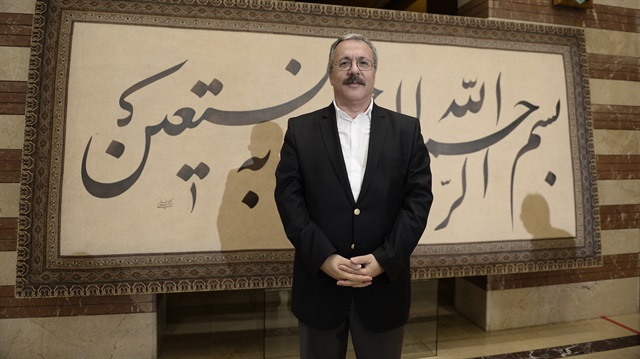
Prof. Mahmud Erol Kılıç, who has served as the Secretary General of the Parliamentary Union of the Organization of Islamic Cooperation (OIC) Member States for a decade, is preparing to hand over his duty to Mohamad Kureyshi Niyas, a representative from the Senegal parliament.
A sister organization of the OIC, the Parliamentary Union of the OIC Member States gathers the parliaments of 54 Muslim countries under one roof, and aims to solve the problems of countries, regions and the world by discussing matters on the agendas of their Muslim nations’ representatives.
We spoke to Prof. Kılıç, who has held the position of secretary general for two terms representing Turkey and is due to leave this position before the holy Muslim month of Ramadan, about what he aimed for in his 10 years of service, and what he could and could not do. We also discussed the situation of the 54 Muslim countries he has been in close contact with for a decade, and the notion of Islamic unity.
We have 54 members from a wide-ranging geographical spectrum. As a result of this, we can group them into three vast geographies – Asia, Arabia and Africa. There are differences in culture and viewpoints across these three groups. There is an Arab dominance in the Muslim world, whether you like it or not. Because the Gulf Arabs who have petrol money pay the highest contribution fee; they have an approach that is, for lack of a better term, “talk as much as your money does.” The regimes of the Gulf Arabs do not include opposition and does not meet the expectations of the people. The changes implemented by Mohammad Bin Salman in Saudi Arabia have left the Arab world perplexed. Saudi Arabia, Egypt and the United Arab Emirates (UAE) have a certain dominance in the Arab world. They are called leader countries. When a dose of Arabism is added into the mix, you may be seen as a second class citizen. The most important factors of Arab identity, and Gulf Arabs’ identity in particular, are based on an anti-Shiite and anti-Iran stance. In doing this, support for Wahhabism is ensured because Shiites are declared as unbelievers. Insults are legitimized by calling them Safavid unbelievers. However, Shiite teachings do not refer to Wahhabis as unbelievers.
Countries such as Indonesia and Malaysia which we can call the Far East of the Muslim world are making progress in their own right, perhaps with a view that comes from being distanced from the Middle East. Malaysia has advanced in recent years, concentrating on improving the economy and domestic peace. It is also an interesting model in terms of Islamic rights. Malaysia’s model of a Muslim state is quite interesting. If a woman wearing the hijab is talented in a certain field, she can reach that industry’s peak. Her hijab is not an obstacle. If a woman who does not wear the hijab and is talented in a certain field, she may also reach that industry’s peak, and both are seen as equals and no differentiation between them is made. In some countries, women who do not don the hijab cannot succeed regardless of their qualifications, and in other countries women who wear the hijab can hit constant roadblocks.
There are some Moroccan and North African Arabs who stay away from the Arab world. These include Morocco, Algeria and Tunisia. I see them on a more moderate line. Personally, I do not want the Muslim world to be represented by the Middle East. Turkey may also play a role here. There should be a new model of the representation of Islam based on Morocco, Malaysia and Turkey. For example, Iran’s insistence regarding the hijab and its persecution of those who do not wear it has started to form a hatred of religion, religious governing and people of religion. This is what I have observed.
I follow a madhab (Islamic school of thought), but I have never enforced this on others or said that everyone should think as I do. For this reason, I have called a Shiite my “brother” and received many messages and emails saying “How could you call a Shiite unbeliever your brother?” Thereby the answer to your question is quite easy, yet also very difficult: “Why not?” It correlates with the quality of our humanity. A century ago, hundreds of families in France’s north were killed by Germans during the Protestant-Catholic wars. However they figured out a way to unite by putting the past behind them, and formed the European Union. Why can’t we do this? I miss Islamic unity, but I am aware that it is unlikely to actualize, is a utopia and perhaps even a fantasy that will never come true.














